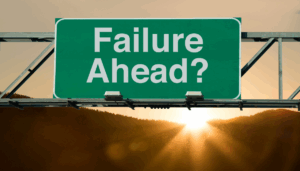Business owners get the tools they need to succeed from three places: good educational material, experienced business coaches, and business peers. In this post, I want to offer what I truly believe are the top five business books every small business owner should read….and read again. These books lay the foundation for what is needed to grow and scale up your business. In a world full of trivial information and little time for reading, business owners need to know exactly what educational content will provide them the greatest takeaway value. Well, look no further. Here are the five books you need on your shelf. The five books that will forever shape the way you run your business.
The E-Myth – By Michael Gerber
 Every new business owner should start with this book. In an easy to read fashion, Gerber lays out exactly why most small businesses fail (he dubs this the Entrepreneurial Myth) and instructs his readers on how to shift their thinking to make way for long-term growth. While cliché, most business owners work in the business and not on the business. Gerber shows why this is a fatal mistake and brilliantly helps you change your paradigm. If you read no other book on the list, read this one!
Every new business owner should start with this book. In an easy to read fashion, Gerber lays out exactly why most small businesses fail (he dubs this the Entrepreneurial Myth) and instructs his readers on how to shift their thinking to make way for long-term growth. While cliché, most business owners work in the business and not on the business. Gerber shows why this is a fatal mistake and brilliantly helps you change your paradigm. If you read no other book on the list, read this one!
“If your business depends on you, you don’t own a business—you have a job. And it’s the worst job in the world because you’re working for a lunatic!”
“The Entrepreneurial Model has less to do with what’s done in a business and more to do with how it’s done. The commodity isn’t what’s important—the way it’s delivered is.”
Good To Great – By Jim Collins
 If you have been in the business world for any length of time and not heard of this book then you have been living under a rock! Collins book was an instant classic from the moment of its publication. He and his team spent years researching companies and sought to identify the common threads woven through the great ones, i.e. the companies that sustained long-term, great performance. While we all secretly hope that success is due to some sexy, brilliant scheme that we have designed, Collins shows that success is rooted more in Grandma’s wisdom than Silicon Valley’s. Good to Great identifies features such as the right people in the right spots, humble leadership, enduring values and purpose, clear goals, and keeping the main thing the main thing. At my company, Good To Great verbiage runs rampant. It should at yours too! Here are a few quotes:
If you have been in the business world for any length of time and not heard of this book then you have been living under a rock! Collins book was an instant classic from the moment of its publication. He and his team spent years researching companies and sought to identify the common threads woven through the great ones, i.e. the companies that sustained long-term, great performance. While we all secretly hope that success is due to some sexy, brilliant scheme that we have designed, Collins shows that success is rooted more in Grandma’s wisdom than Silicon Valley’s. Good to Great identifies features such as the right people in the right spots, humble leadership, enduring values and purpose, clear goals, and keeping the main thing the main thing. At my company, Good To Great verbiage runs rampant. It should at yours too! Here are a few quotes:
“Great vision without great people is irrelevant.”
“Greatness is not a function of circumstance. Greatness, it turns out, is largely a matter of conscious choice, and discipline.”
“Letting the wrong people hang around is unfair to all the right people, as they inevitably find themselves compensating for the inadequacies of the wrong people. Worse, it can drive away the best people. Strong performers are intrinsically motivated by performance, and when they see their efforts impeded by carrying extra weight, they eventually become frustrated.”
EntreLeadership – By Dave Ramsey
 In my humble opinion, Dave Ramsey is the quintessential entrepreneur. He is smart, aggressive, driven, and cares about serving people. He climbed to the top, fell flat on his back, and climbed back again. His brand and companies are the envy of many. What I love so much about the book EntreLeadership is that Dave takes great business content and makes it super practical. What Collins offers from the halls of the academically revered Stanford Business School, Dave matches with what he terms “practical business wisdom from the trenches.” From setting goals and understanding small business marketing to hiring/firing and building unity, Dave offers a pretty complete small business toolkit with this book. The stories found within will make you laugh and appreciate the message even more. Here are a few quotes:
In my humble opinion, Dave Ramsey is the quintessential entrepreneur. He is smart, aggressive, driven, and cares about serving people. He climbed to the top, fell flat on his back, and climbed back again. His brand and companies are the envy of many. What I love so much about the book EntreLeadership is that Dave takes great business content and makes it super practical. What Collins offers from the halls of the academically revered Stanford Business School, Dave matches with what he terms “practical business wisdom from the trenches.” From setting goals and understanding small business marketing to hiring/firing and building unity, Dave offers a pretty complete small business toolkit with this book. The stories found within will make you laugh and appreciate the message even more. Here are a few quotes:
“The problem with your company is not the economy, it is not the lack of opportunity, it is not your team. The problem is you. That is the bad news. The good news is, if you’re the problem, you’re also the solution. You’re the one person you can change the easiest. You can decide to grow. Grow your abilities, your character, your education, and your capacity. You can decide who you want to be and get about the business of becoming that person.”
“Humpty Dumpty is hard to put back together, and so is trust.”
“If you as a leader allow people to halfway do their jobs and don’t demand excellence as a prerequisite to keeping their job, you will create a culture of mediocrity.”
 This is probably the book on the list least likely to be on your radar. But Harnish has written the book I would want to write if I were to write a book on the steps to building a great company. Every other book that didn’t make my top five list (but is potentially worthy) is mentioned and discussed in his book. Harnish lays out a logical plan for business owners to walk through, addressing the key steps to creating a scalable organization. Combine E-Myth, Good To Great, Drucker, Ramsey, and a host of others into a practical step-by-step guide, and you have Scaling Up by Verne Harnish. As opposed to the others, this book is packed with exercises, worksheets, and resources, so don’t plan on reading it in one sitting. Here are a few quotes:
This is probably the book on the list least likely to be on your radar. But Harnish has written the book I would want to write if I were to write a book on the steps to building a great company. Every other book that didn’t make my top five list (but is potentially worthy) is mentioned and discussed in his book. Harnish lays out a logical plan for business owners to walk through, addressing the key steps to creating a scalable organization. Combine E-Myth, Good To Great, Drucker, Ramsey, and a host of others into a practical step-by-step guide, and you have Scaling Up by Verne Harnish. As opposed to the others, this book is packed with exercises, worksheets, and resources, so don’t plan on reading it in one sitting. Here are a few quotes:
“People join companies. They leave managers.”
“Goals without routines are wishes; routines without goals are aimless. The most successful business leaders have a clear vision and the disciplines (routines) to make it a reality.”
“Scaling up is every entrepreneur’s dream — and nightmare. Hypergrowth is terrifying, and it’s most often success that kills great companies.”
The Effective Executive – By Peter Drucker
 Any list of business books of any value must have a Peter Drucker work in the mix. Drucker, the father of modern management, will be drawn upon for decades to come. I have chosen this book for the list because every owner will inevitably face the questions, “What am I supposed to do? Where do I contribute? How am I supposed to spend my time?” If you aren’t asking yourself these questions, then you probably are working too much “in your business.” Drucker helps us understand how to be effective, how to manage our time, and how to put the first things first. If you call yourself a business leader and you haven’t read Drucker…well, just read him! Here are a few quotes:
Any list of business books of any value must have a Peter Drucker work in the mix. Drucker, the father of modern management, will be drawn upon for decades to come. I have chosen this book for the list because every owner will inevitably face the questions, “What am I supposed to do? Where do I contribute? How am I supposed to spend my time?” If you aren’t asking yourself these questions, then you probably are working too much “in your business.” Drucker helps us understand how to be effective, how to manage our time, and how to put the first things first. If you call yourself a business leader and you haven’t read Drucker…well, just read him! Here are a few quotes:
“An organization that his not capable of perpetuating itself has failed. An organization therefore has to provide today the men who can run it tomorrow.”
“I have never encountered an executive who remains effective while tackling more than two tasks at a time.”
“Effective executives put their best people on opportunities rather than on problems.”






